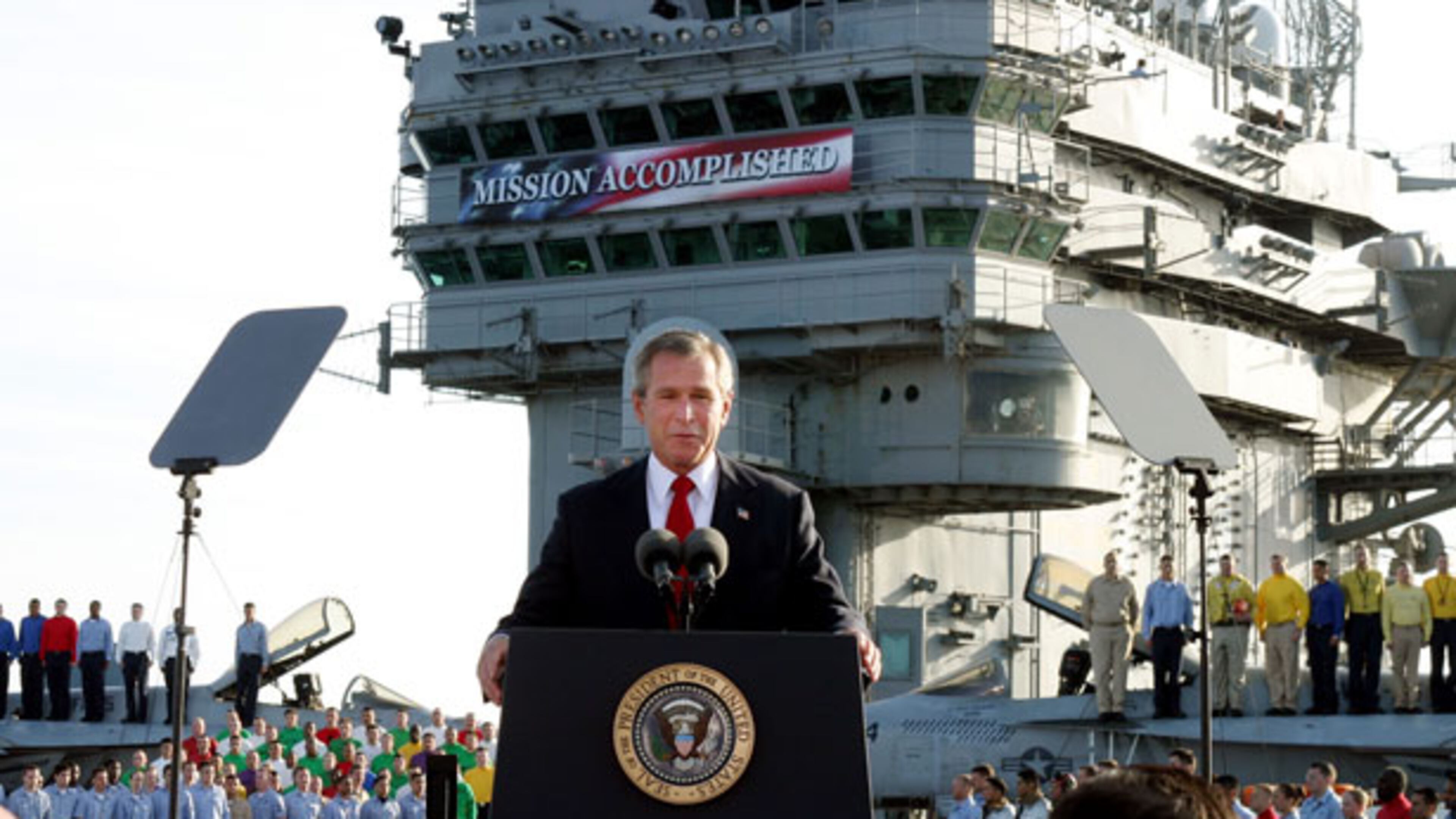If we're going to rehash the Iraq decision, let's at least get it right

It has taken a long time, but with the 2016 presidential campaign, we are finally trying to come to grips with the disastrous decision to invade Iraq. Poll after poll now reports that an overwhelming majority of Americans recognize the war as a mistake, and our would-be leaders are scrambling to reconcile their own past positions on the war with that new political reality.
However, if this exercise is to be useful, it has to be honest and it has to be more than a wistful look back. We have to be willing to draw lessons from that painful mistake that will help guide us in avoiding such mistakes in the future. And that part of the debate, the only truly important part, is unfortunately not happening.
Let's start with this:
The decision to invade Iraq in 2003 was based on three important assumptions. All three of those assumptions had to be correct for the war to have been justified, and in the end, none of the three proved valid. Those assumptions were:
1.) We assumed, based on intelligence, that Iraq had a major, ongoing WMD program. Today, we know that to be untrue, a fact that Jeb Bush and others now cite when claiming, begrudgingly, that they would not have invaded "knowing what we know now." It has become a form of a "get out of jail blame-free card."
The problem is, we knew that Iraq had no major, ongoing WMD program even back then, before we sent a single American soldier across the border. We don't like to remember that fact, but it is true nonetheless. UN inspectors had been on the ground in Iraq for weeks just before the war, roaming freely, inspecting palaces and everywhere else, and they had found literally nothing. We knew at that point that Saddam had no nuclear program and no ongoing WMD program of any size or consequence, although it remained possible that he had small, secret caches of such weapons somewhere. Another couple of weeks of inspections would have resolved that matter as well.
However, the inspectors were pulled at American insistence before they could complete their work, because once that work was complete it would have removed the justification for an invasion that we had already decided would occur, WMD or no WMD.
2.) We also assumed that unless we intervened with an unprovoked, "preventative war," Iraq would turn its WMD against American targets, either directly or indirectly by giving those weapons to al Qaeda. That claim was never true, it was never even plausible and was backed by no credible intelligence; Saddam Hussein had no means or reason to attack us directly, and he had no reason to cooperate with Islamic terrorists who were his regime's sworn enemies, for reasons that subsequent history has made clear.
In short, the dire propaganda of "mushroom clouds over American cities," of Iraqi "unmanned aerial vehicles" somehow delivering WMD to our shores, of secret meetings in Czechoslovakia between al Qaeda and Saddam's regime -- they were all inventions created out of whole cloth to terrify the American people into accepting war. It was a shameful, conscious deception; none of it had any basis in fact or logic.
3.) We assumed that after being greeted as liberators, our brief, painless and cost-free occupation of Iraq -- it would pay for itself, remember? -- would turn that deeply troubled and inherently violent country into a peaceful beacon of Western democracy and a permanent base from which to project American military power in the region. Really, we thought that would happen. Or at least those in control thought it would happen.
That's how truly clueless we were. That's how little we knew about the region and about the limitations of overwhelming military power. That's how arrogant we were in assuming that we could march into that country and remake it to our liking.
It is now more than a decade later, enough time for passions to cool a bit and thoughtful appraisals to take place. But if we allow our leaders to pretend that the only thing wrong with our decision to invade Iraq was our failure to find WMD, we get it all wrong all over again and we raise the odds dramatically of repeating that tragic mistake.
Even if Iraq had possessed WMD, it posed no real threat to us. That threat had to be invented. And even if Iraq had possessed WMD, the subsequent occupation would still have been a disaster and we would still be facing the enormous repercussions of that disaster, including 4,000 dead Americans, tens of thousands of damaged soldiers, trillions of dollars wasted and a Middle East much less stable than before the invasion.
And this is the important part: Alleged Iraqi WMD was the excuse for the war, it was not the reason for the war. The war was fought as an opportunity to demonstrate to the world a newly muscular, Cheney-esque effort that would supposedly cow all of our enemies and fully engage the world-changing power of the American military. And we've seen how that all worked out.
Even now, many of those claiming to have learned the lessons of Iraq are proving that they have learned nothing at all, because they are still preaching the same cowboy foreign-policy that got us into that mess. Iraq is not an object lesson to them; it is an inconvenient little fact that has to be explained away with soothing words before they can go on to pursue the very same policies that led us into the single biggest foreign policy blunder in our nation's history.


